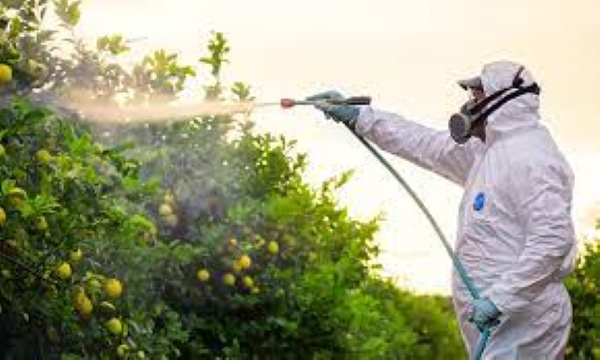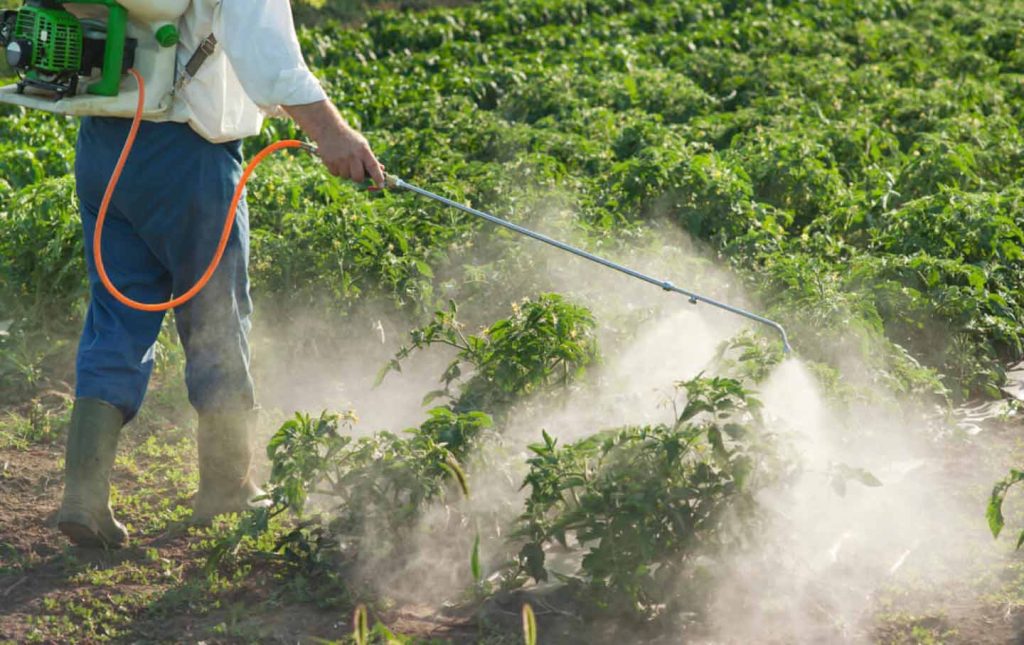Chemicals that are used in agriculture are referred to as agrochemicals. They refer to biocides and synthetic fertilizers and may also include hormones and other chemical growth agents that are used to protect crops from pests and enhance crop yields, thereby ensuring good harvest.
Good food is a major concern of this time and the use of agrochemicals is a positive influence on crop yield and protection.
All agrochemicals play significant roles in promoting crop nutritional quality and contributing to land and environmental sustainability.
There are pesticides, which include insecticides, herbicides, fungicides and nematicides, which are referred to as crop protectors used to prevent or control the risk of pests destroying crops, they kill weeds, insects, fungus and rodents. There are soil supplements, which include fertilizers and manures used to improve soil quality and replenish soil nutrients.
Agrochemicals also refer to plant supplements, which are naturally-occurring chemicals that many contain nitrogen, phosphorus, sulphur and other of their kind that promote the production of new cells that then organise into plant tissues.
They do not only contribute to the flourishing growth of crops and animals, but also ensure stable supply of healthy fresh agricultural produce.
Agrochemicals has so much importance to farming and so many benefits to agricultural produce, farmers, economy and even the environment.
Agrochemicals can increase the amount of key nutrients in the soil for crop plants, meaning that they can grow larger and healthier, which can produce good harvest, thereby enabling farmers to yield more crops per acre of land for a longer period, which would lessen their working hours by allowing them to diversify.
This would bring about a reduction in cost of food by allowing an increase in demand from consumers, thereby having a significant positive impact on the economy of the nation.
On its environmental benefits, less area produces huge yields, therefore, the rate of deforestation, which is the removal of trees leading to adverse outcomes such as climate change, soil erosion, fewer crops and flooding to mention a few, is greatly reduced.
Asides its use on crops and agriculture in general, agrochemicals are used in the preservation of home gardens, ornamentals, in household pest management, materials protection and vector control.
As it is with many other things, whatever has advantages also has disadvantages; agrochemicals have effects on agriculture and the environment, it has a number of dangers and disadvantages, which can be due to its mode of application and overuse.

A 2022 World Health Organisation (WHO) report, “Pesticide Residues in Food”, indicates that there are more than 1,000 pesticides used around the world to ensure that food is not damaged or destroyed by pests, but each pesticide has different properties and toxicological effects. Agrochemicals are to be moderately and meticulously applied.
Some of the disadvantages of agrochemicals are environmental pollution, reduction of soil quality and nutrient imbalance, toxicity to soil microorganisms with residual effects on human health.
Overuse of agrochemicals can cause environmental pollution in the sense that they seep into the surrounding land and water bodies, contaminating the water bodies with nitrate, a chemical compound that is poisonous to humans and animals when in large concentrations.
Additionally, excessive use of agrochemicals also generates a remarkable number of residues causing nutrient imbalance and quality reduction of agricultural produce.
Soil microorganisms are microscopic life forms that include bacteria, archaea, viruses and fungi needed in plant growth to increase the source of nitrogen in the soil. They perform functions such as nutrient cycling, breaking down crop residues and stimulating plant growth.
However, the overuse of agrochemicals can bring about an accumulation of residues and reduction of nutrient availability in the soil environment by posing threats of soil and food contamination.
Human health can equally experience risk of short-term and long-term side effects from the overuse of agrochemicals.
Our farmers should know that agrochemicals should not be applied haphazardly. There are usually instructions to follow during the application of these chemicals.
One thing to note is when an agrochemical is to be used, time should be taken to thoroughly go through the label provided and instructions.
Understanding the need and applicability of preventive measures is critical. There are many effective ways to greatly reduce the negative effects of agrochemicals on crops, environments, humans and animals and one of such ways is the right application of the agrochemicals.
For instance, most insecticides are to be mixed with moderate, but adequate amount of water. The pH of the water to be used is to be tested and adjusted before mixing it with the insecticide, after which the mixture is to be sprayed immediately within a few hours.
A mixed chemical should never be allowed to stay overnight before application and spraying it must be done according to label directions.
Pesticides is mostly effective during the cooler part of the day so it could be applied in the early morning or evening.
The salient point to note here is that agrochemicals should be applied correctly to yield fruitful harvest and to prevent negative influences on the crop and the environment.
Misuse of agrochemicals is a key cause of pollution of potable water, reservoirs and watersheds and it is mostly attributable to seemingly irresponsible behaviour of farmers and agrochemical sellers (Wimalawansa & Wimalawansa, 2014).
Hence, an effective way of managing such risks is for farmers to undergo proper training in the use and application of agrochemicals.
In conclusion, the use of agrochemicals should be controlled. Pesticides must be approved and registered by relevant regulatory authorities before they can be legally sold, supplied or used. This should include a thorough evaluation of their safety and efficacy.
Other agricultural practices like crop rotation and the use of resistant plant varieties can be embraced in place of some agrochemicals to reduce the need for pesticides in the first place. Farmers should never forget to wear protective equipment during application of chemicals.
While it might not be possible to completely stop the use of agrochemicals because of their potential negative effects, effective measures can be put in place to greatly minimise their side effects in a bid to promote food safety, individual health, and a pollution-free environment.

